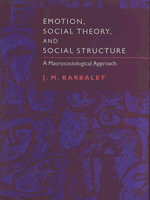5 - Conformity and shame
Published online by Cambridge University Press: 22 September 2009
Summary
The oldest explanations of human behavior are moral, not social; and one of the oldest forms of moral exhortation mobilizes the emotion of shame. It is a measure of our times that, together with a popular perception of declining morality, a popular view is that experience of shame is oppressive. Shame is able to play a role in these different formulations because it is unavoidably a social emotion. Shame operates in terms of a supposition of another's regard for self, of taking on the view of another. In this way, shame pulls those who experience it in line with social expectations.
It will be shown in this chapter that shame has played a continuing role in explanations of social conformity. The chapter begins by considering various statements of just this point in writers from the eighteenth century to the present. It is shown that while Adam Smith misunderstands the capacity of shame to stem envy, he nevertheless developed a fully sociological account of shame's contribution to social conformity. In fact, he was the first to do so. Charles Darwin's discussion of shame is also recounted in this chapter. The links between these accounts and the sociological account of shame by the American sociologist Thomas Scheff is also discussed.
But not all theories of conformity function in terms of shame, and some writers have held that shame is of historical interest only, that it is today a declining emotion. These positions are also critically discussed in this chapter.
- Type
- Chapter
- Information
- Emotion, Social Theory, and Social StructureA Macrosociological Approach, pp. 103 - 125Publisher: Cambridge University PressPrint publication year: 1998
- 2
- Cited by

